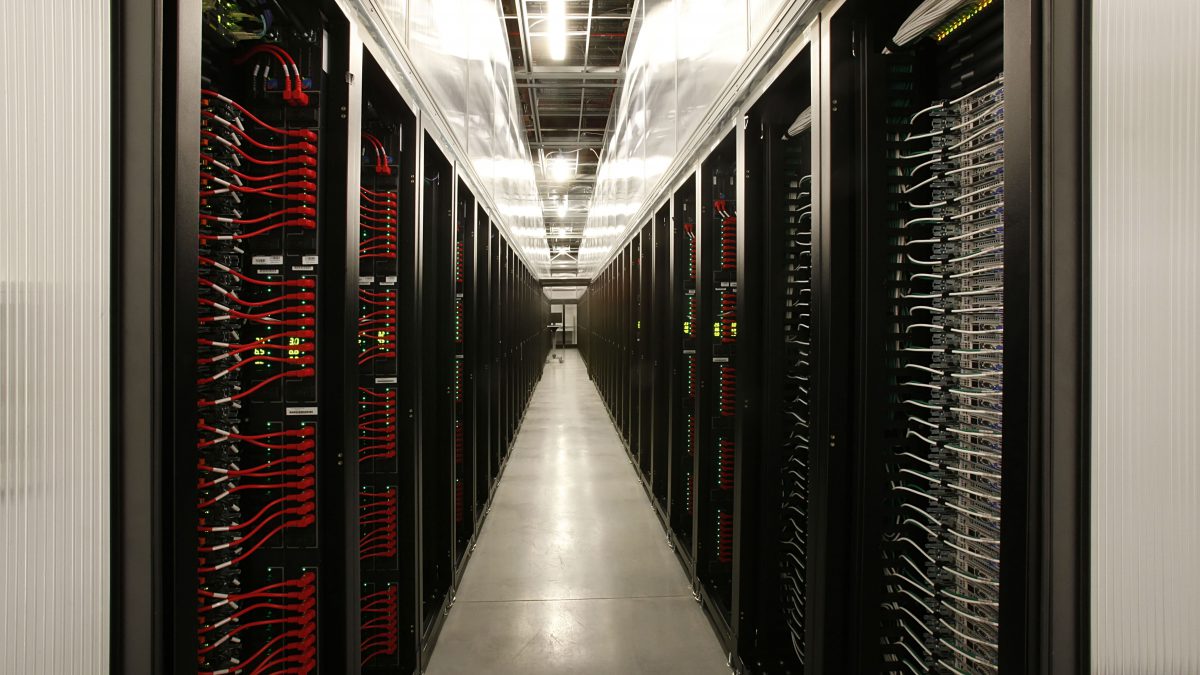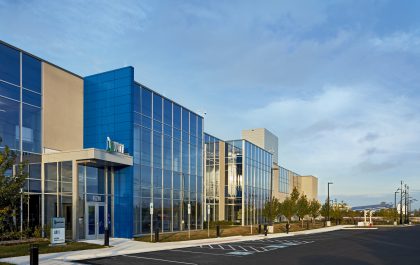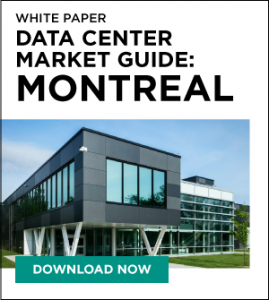In the last article on Data Centers Today, we talked with the chief operating officer of Vantage Data Centers Chris Yetman about operational excellence. During our discussion, we defined operational excellence, established how a company can attain operational excellence and what operational excellence looks like for a data center.
Operational excellence may be something that all companies look to achieve, but it’s certainly not something that’s found across all data center providers. In fact, data center providers may be more unique than many data center customers may expect.
While many potential customers may know to ask about up-time, reliable power, secure facilities and consistent temperature ranges, there are other differentiators that they may not be looking for in their potential data center provider.
How do data center providers approach and treat their customers? How equipped are their employees to handle maintenance and power events? These are just two of the handful of considerations we heard from Chris during the second half of our discussion when we looked to define what potential data center customers should be looking for in their outsourced partner.
Interview with Chris Yetman

Chris Yetman: Data center customers know things will break. They understand that. What they’re looking for is a provider who can ensure that when things break, it won’t interrupt their service. It’s going to be repaired fast, the provider is going to be transparent and they’re going to keep the customer informed. What the customer wants is a data center provider that – if an event occurs – communicates it to them and ensures them that they don’t have to worry about it, just its impact on their business – if any – and what they have to do to protect their business.
Data Centers Today (DCT): We talked about operational excellence and why it’s important in a data center. How does operational excellence extend into a data center’s interactions with its customers?
For example, at Vantage, we had a power event and had to roll to generators as a result. If we didn’t communicate to the customers about it, they would have eventually figured it out and would have had to call in a panic to find out if everything was okay. If our customer wasn’t communicated with immediately, we’d be setting them up for failure. If the COO of one of our customers found out that the power was out in Silicon Valley and called the VP in charge of operations and they didn’t know, you just made that VP look terrible to his/her superiors.
Instead, we immediately communicated that we rolled to generators. We communicated why. We told them what the current state was and what the next action was. If that COO called the VP, they’d know exactly what happened, they’d know the impact on their business, and they’d know what was going to happen next.
DCT: What should a customer be looking for in their data center provider? What benefits and services should they be inquiring about?
Chris Yetman: More than anything, they should be looking for a data center provider that doesn’t treat them like a tenant, but treats them like a customer. The data center marketplace is full of real estate investment trusts (REITs). Many of these REITs behave like landlords because that’s what they’re accustomed to. But a landlord isn’t a business partner. And that’s really what data center providers should be to their customers.
A data center provider needs to treat their customers as customers and not tenants because they’re not just leasing space or power, they’re running their business out of the data center. If the lights go out in an office building, the tenants are inconvenienced, but the business probably doesn’t materially suffer. If their data center’s power goes out, a customer’s business is negatively impacted. It’s a core piece of their ability to operate.
It’s also essential that the data center provider acts as a trusted business partner and consultant. This is especially true when customers request something custom. A trusted business partner wouldn’t just blindly do what they ask, they’d work to get a better understanding of the customer’s business need and identify why they asked for what they did.
From there, they can consult with them, provide counsel and work with them to give them the service they need. The data center provider may even find a better way to deliver what the customer wants. Regardless, it’s essential that the data center provider take a consultative approach to sales and service and not just operate like a landlord trying to get a tenant to sign a lease.
Here is a great example. About a year or so ago, Vantage wasn’t running any water-cooled racks in our data centers. A potential customer with massive compute requirements that needed water cooling to the rack asked us if we could support them. We knew that it was a meaningful part of the future of the industry, so we set out to work with that customer to figure out what it would take to implement water-cooled racks.
We began rolling it out for the customer, who soon began asking for more capacity and expanding their service with us. The customer even told us that we were outperforming other data centers that they were utilizing. That was because we worked with them to understand their requirements, did all the engineering to understand everything that was needed, and held the vendor who made the water-cooled racks accountable to their specifications.
It turns out that the vendor’s cabinets weren’t actually meeting their specifications. Since Vantage had gone the extra mile, we understood the engineering and knew the specifications, and we worked with the vendor to fix the issues with their cabinets. That’s not something a landlord does. That is something a trusted business partner does.
DCT: What else can data center providers do to differentiate themselves in a competitive market beyond price?
Chris Yetman: Aside from excellence in their operations, data center providers can differentiate themselves through vertical integration. The more vertically integrated the data center provider, the more opportunity they have to be a trusted partner with the customer.
Many of the REITs that own data centers are outsourcing the controls that operate their data centers – they’re behaving like real estate companies. Their customers also don’t want to operate and maintain the data center, they have their own business to manage. So, controls are incredibly important in terms of how well the data center functions and what it can do. Many of the data center providers buy controllers from others, including the software that runs them, which then tells the mechanical and electrical systems what to do.
More vertically-integrated data centers need controls, too. That’s not unique to REITs. However, they will often write their own software, install it and run it on the programmable logic controllers (PLCs) that run the critical infrastructure systems. This gives the data center provider a deeper understanding of how everything in their data center works. It also gives them the ability to offer another level of customization to the customer. If a customer wants the behavior of the overall system changed, it’s possible. It’s also possible to identify inefficiencies in the operations of the data center and quickly make changes that will enable an increase in efficiency.
DCT: What about the people and the staff? What should customers be looking for in their data center provider’s employees? What should they expect from them?
Chris Yetman: I think it’s essential that data center staff be held accountable to the customer and are properly trained and equipped so that as much of the work in the data center as possible can be done internally.
Once again, I’m going to use Vantage as an example because our approach to staffing the facilities is different than most. What I believe many data center providers do – especially those that are REITs – is create contracts for supporting the equipment and then they manage those contracts. The problem with this approach is that the people that manage the equipment look at the data center provider as their customer, not the actual customer or tenant. The consumer of the data center has become one layer removed in this situation – they’re not the customer, the REIT is.
In this situation, when the data center has a problem, the REIT must lean on these people to get them to perform. And often, because they are a layer removed, the service can frequently be poor. None of the parties involved are focused on the impact to the customer.
That’s different at Vantage. The people that maintain our facilities are doing the vast majority of the work. We replace pumps, motors, controllers and compressors when they fail. We even have consistent standards for UPS devices and send our employees to become factory-certified, authorized representatives that can repair that equipment. This allows us to repair our equipment, hands-on.
Here is how that looks to the customer. If a UPS fails, the REIT calls the service vendor responsible for fixing it. Then they must dispatch a repair person that is supposed to be there within four hours. Then they have to troubleshoot and diagnose the problem. If they have an issue, they call back for help. By the time they figure it out, that device has been down for a full day. Then, they have to order a part. By the time it comes in, days have passed. Then, another service call gets scheduled. All this time, the UPS is down – possibly for a week or more. However, when the customer calls the REIT to complain, they can legitimately say that they’re doing all they can and that the issue is with a third party.
If the data center’s employees are educated and authorized to repair equipment on site, they can repair that UPS themselves. They can even do their own work under warranty without voiding the manufacturer’s warranty because the staff is certified and authorized to do the work. If the data center also keeps spare parts on hand, they can begin to fix the device immediately. In this situation, when a UPS fails, an alarm goes off. The trained and qualified maintenance team goes to fix it. Once the problem is diagnosed, they go get the parts from another building and repair it. The device is back online within a few hours.
Later that day, the data center with service contracts is saying, “I’m working the vendor as hard as I can, and it’ll take four or five days to fix it.” The one with trained, qualified, certified repair people on staff is saying, “We fixed the problem, and the device is back online.”
If you would like to learn more about Vantage’s wholesale data centers located throughout North America, please visit our website.



